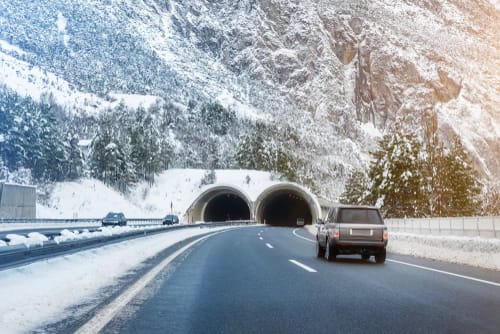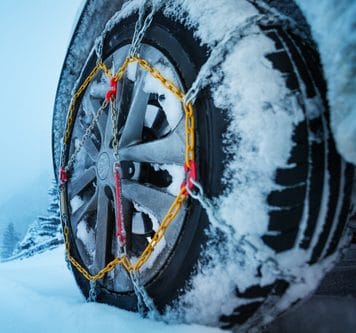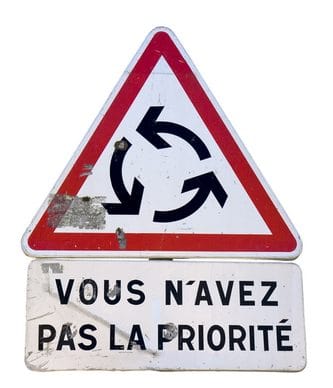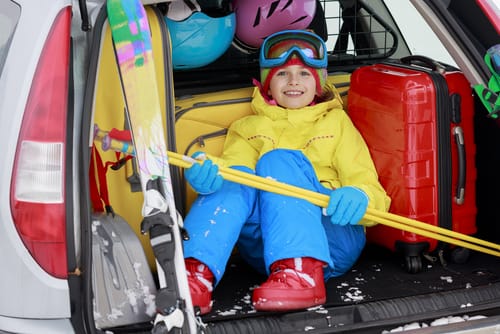
Travel Series #3 Automobile
6 minute read Covid-19 travel restrictions ... are a thing of the past 😃 Your pre-travel admin tasks are- Check you have up to date and valid passports
- Check you have all your travel documents filed digitally and/or on paper as required
- Check your travel company’s website for the latest entry information
- Check your UK Global Health Insurance Card (GHIC) (previously European Health Insurance Card) is in date
 We are well versed in this convenient, family and carbon footprint friendly mode of travelling to the Alps.
Driving takes longer than flying or hopping on a train, and of course there is a lot of driving to be done. But if you share and / or you like driving it’s an economical and flexible way to travel. Planned well the journey becomes part of the holiday. Some of the pros include
We are well versed in this convenient, family and carbon footprint friendly mode of travelling to the Alps.
Driving takes longer than flying or hopping on a train, and of course there is a lot of driving to be done. But if you share and / or you like driving it’s an economical and flexible way to travel. Planned well the journey becomes part of the holiday. Some of the pros include
- Fewer carbon emissions per person than flying
- Only baggage allowance how much you can cram into your car
- Freedom to stock up on self-catering supplies or take home new purchases
- Option to explore different resorts
- More freedom for ‘non-skiers’ in the daytime
- Extend your trip (or do stop-overs) and visit other places
Route Planning and Budgeting
Via Michelin Route Planner is great, helping you to plan and budget for your trip. The RAC provide a comprehensive European driving checklist which is worth downloading, including important documents, required equipment and other recommended things to ensure a safe, smooth driving experience in Europe. The AA also provide a good checklist of essential and useful things to have with you on a European driving holiday.Compulsory items include:
- Your Certificate of Motor Insurance
- The log book (V5C) for the vehicle and motor insurance certificate
- Your full valid driving licence with paper counterpart if you have a photo card licence
- A UK car sticker
- Warning triangle
- Headlamp converters, which deflect headlight beams when driving on the other side of the road
- A high-vis reflective jacket for each person in the car. You must be able to reach the jackets from inside the car (not kept in the boot) and must be used in the event of a breakdown when you leave the car
- Passport
- First Aid kit
- Winter tyres are not mandatory in France, but you need to carry snow chains and use as required by local signs or conditions
- Before you travel ensure your vehicle’s tax and MOT are valid and up-to-date
- one or more international driving permits
- a separate UK sticker
Further pre-travel considerations
... when driving to Méribel and across France:



- Currently, you do not need an international driving permit (IDP) to drive in France
- Make sure your car is in tip top condition – maybe book a service, check engine coolant is topped up with anti-freeze and your windscreen washer fluid is a more concentrated mix that normal
- Service station food is expensive – take packed lunches/snacks from home
- You may not need to use your snow chains, but it’s essential you practice putting them on at home. You could even practice driving a few metres in them. Make sure you have gloves accessible in the car – putting snow chains on in a freezing blizzard with bare hands is not fun
- Check overseas regulations for driving abroad – remember to drive on the right and to give way to the right. Sometimes this will mean that a car turning onto a road from a junction will have right of way over a car already on the road
- Traffic lights: French traffic lights go straight from red to green with no amber stage
- Make sure you research, and you’re comfortable with, the French breakdown/accident procedures; and that you have overseas breakdown cover
- Who will be driving? It’s a good idea to have more than one person insured and able to drive the car
- Will you be doing a pit-stop? Book accommodation in advance to avoid having to seek out vacancies when you’re tired
- plan your route ahead of time checking it out on your phone or satnav before you head off
- Consider tolls when you plan your route – As already flagged, ViaMichelin do great directions, toll road costs and fuel estimations. You’ll probably pay around €70-80 in tolls each way, but could plan a longer route avoiding them. You can now buy a toll tag which lets you through the toll barriers without stopping for a ticket – which is convenient!
- If you can, arrive outside of the main changeover days (Sat/Sun) to avoid traffic.
Travelling with the kids?
 Check out our expert advice in one of our previous blog posts from sister brand The Ski Company. We hone in on this special and niche tra
vel activity where plannng ahead is everything for an enjoyable and as event free journey as possible with small travel companions!
Check out our expert advice in one of our previous blog posts from sister brand The Ski Company. We hone in on this special and niche tra
vel activity where plannng ahead is everything for an enjoyable and as event free journey as possible with small travel companions!
Eurotunnel or ferry?
To cross the channel, Dover is generally the best option irrespective of where you’re travelling from in the UK. You can choose between the Eurotunnel (35 mins and a bit more expensive) or the ferry (90 mins and a bit cheaper) run by P&O and DFDS. Book online, in advance, for better rates. You can also buy a flexi-ticket for either option if your timekeeping is questionable! That said, if you arrive early, you’re often allowed on an earlier crossing. Further north, you could get the P&O ferry from Hull to Zeebrugge, in Belgium. Travelling 12 hours overnight for around €219 one way, you get accommodation, a restaurant, bars, Duty-Free, a casino and even a cinema!Parking in Méribel
There are a number of parking options in Méribel indoor and outdoor including some free parking, but you will have to move your car periodically. Again See Meribel provide some very helpful guidance around parking in Méribel. And some very useful ‘good to know’ parking tips to follow here:- Leave your car in a gear
- Park facing downhill and turn your wheels towards the kerb to act as a brake
- Leave the handbrake off (the cables can freeze and snap)
- Lift windscreen wipers up so they don’t freeze to the windscreen
- Take a note of where you parked in case your car is hidden under a heavy snowfall!


